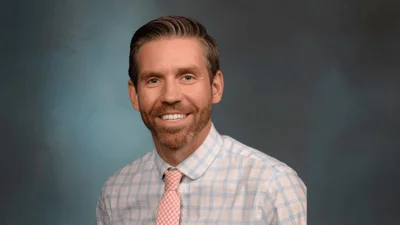Illinois State Rep. Charlie Meier | charliemeier.net
Illinois State Rep. Charlie Meier | charliemeier.net
Illinois State Representative Charlie Meier (R-109) and his fellow House Republicans presented a plan to stop abuse at Illinois care facilities in a Facebook video published by Illinois House Republicans on Wednesday.
"Today I joined my colleagues in sharing our concerns about the abuse and neglect reported in state-operated developmental centers and presented a plan to help stop the abuse," Meier wrote.
Meier is an Okawville resident who was first elected to the Illinois House of Representatives in 2013. His legislative experience includes serving on the Agriculture & Conservation Committee and the Energy & Environment Committee.
During the Zoom press conference shared by Meier, he, State Rep. Dave Severin (R), and State Senator Terri Bryant (R) discussed the Illinois Department of Human Services' (DHS) alleged continuous failure to protect developmentally disabled individuals at state-run facilities. Meier renewed calls for legislative hearings and the implementation of an improvement plan by DHS at state-operated developmental centers (SODCs) and community-integrated living arrangements.
"I am here today to share my continued frustration and disappointment with DHS and its chronic failure to keep our most vulnerable residents with developmental disabilities safe in the majority of the state-operated developmental centers throughout Illinois," Meier said during the meeting. "Unfortunately, the abuse and neglect that is happening does not stop there. It’s been happening in our CILAs 'group homes' as well. We are talking about people with severe disabilities that either can’t communicate, can’t bathe themselves, or can’t feed themselves. These most vulnerable residents living in developmental centers throughout our state can’t protect themselves and I am very sad to learn that more reports that our most vulnerable residents under state care are being punched, slapped, hosed down, thrown about and dragged, and in some cases left to die."
On September 2, 2022, ProPublica published an article focusing on Blaine Reichard, a resident of Choate Mental Health and Developmental Center. In 2014, following the then-24-year-old's vocal defiance and refusal to obey orders, four mental health techs pinned Reichard to the ground and repeatedly punched him in the face according to a 700-page state police investigation obtained under the Freedom of Information Act. The man tried to fight back and was met with further assaults. Reichard, who is autistic, told police that he felt like he had been hit 100 times. The article also discussed other, more recent complaints, including one in 2020 in which an employee was charged with battery for allegedly using his belt to beat a resident. A 2022 incident featured an employee being charged with criminal sexual assault of a resident.
Another ProPublica article published on July 11 revealed that Choate isn't the only mental health center at the center of public outcry regarding coverups of resident abuse and staff misconduct. A division of the Illinois State Police (ISP) focused on criminal wrongdoing by state employees reportedly investigates more allegations against workers at Illinois' seven developmental centers than it does at any other department's workplaces, including state prisons that typically house much more people. The ISP has since opened 200 investigations into employee misconduct at the development centers since 2012, with most of the complaints coming from outside of Choate. These facilities are typically short-staffed and house about 1,600 residents each.
According to a WSIL article published in March, Illinois Governor J.B. Pritzker and the Illinois Department of Human Services (IDHS) announced the launch of a transformation initiative for state-operated developmental centers. Said plan includes repurposing Choate, rehoming its residents, implementing new safety enhancements across all state-operated developmental centers, and expanding support for families and individuals pursuing opportunities for community-based living while investing in provider capacity.




 Alerts Sign-up
Alerts Sign-up